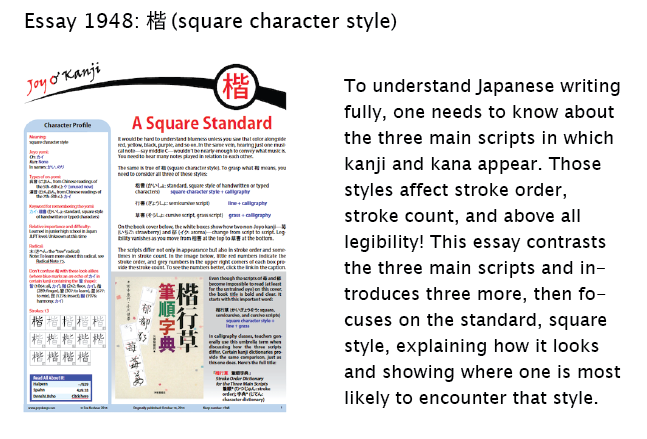Return to Wonderland
We haven't done a Quick Quiz here in awhile, and I think it's high time. When I choose words for a quiz, it's because they have given me a sense of wonder. I could use a sense of wonder right about now. We probably all could! So let's do a quiz!
What do you think the following words could mean? Choose one answer for each:
1. 無形 (むけい) no + shape
a. vague
b. before realization
c. preadolescent (girl's figure)
d. raw materials
2. 裏山 (うらやま) behind + mountain
a. the future
b. hill behind the house
c. shadow side (of a personality)
d. ramifications
3. 領袖 (りょうしゅう) territory + sleeve
a. leader, chief
b. seamstress
c. clothing store
d. tissue
4. 朝活 (あさかつ) morning + activity
a. exercise
b. morning hygiene routine
c. breakfast routine
d. using early morning time (e.g., before going to work) for some activity
I'll block the answers with a preview of the newest essay:

Okay, here are the answers:
1.b. 無形 (むけい: no + shape) means "before realization," as well as "no shape." This word pops up in the following sentence from 「孫子 (そんし: The Art of War)」by Sun Tzu (translated into Japanese, of course):
上兵は謀を伐ちて無形のうちに之を制し、最も下策は力を以て城を攻む。
The best strategy is to get it under control before the plot takes shape. The worst one is to attack the castle with force.
上兵 (じょうへい: good strategy); 謀 (はかりごと: plot); 伐つ (うつ: to attack); 之 (これ: this, a non-Joyo kanji); 制す (せいす: to get under control); 最も (もっとも: most); 下策 (げさく: bad plan, weak strategy); 力 (ちから: force); 以て (もって: with, by means of); 城 (しろ: castle); 攻む (せむ: to attack)
This sentence (which is coming up in essay 1707 on 伐 (to cut down; attack)) is in archaic Japanese. The verbs 制す and 攻む respectively correspond to 制する (せいする) and 攻める (せめる) in the contemporary language.
2.b. 裏山 (うらやま: behind + mountain) means "hill behind the house." This, too, will be in essay 1707 in the following sentence:
私は裏山の竹や欅を伐ることにした。
I decided to cut down bamboo and zelkova trees on the hill behind my house.
私 (わたし: I); 竹 (たけ: bamboo); 欅 (けやき: zelkova tree, a non-Joyo kanji); 伐る (きる: to cut down)
3.a. 領袖 (りょうしゅう: territory + sleeve) means "leader, chief." Dictionaries say that 領袖 literally meant "collar and sleeves" in the beginning. (Henshall indicates that the right side of 領 means "head," whereas the left side may phonetically express "neck" while likely meaning "rule.") The word 領袖 came to mean "leader, chief," according to dictionaries, because the collar and sleeves are the most prominent parts of clothes. Are they?! I suppose it depends on the garment—and the person. The word makes me recall one of the more memorable people I ever interviewed, back when I was writing profiles of visionary architects.
4.d. 朝活 (あさかつ: morning + activity) means "using early morning time (before going to work) for some activity."
This reminds me of a word Ulrike once taught me:
朝飯前 (あさめしまえ: cinch to do, piece of cake, trivial matter)
morning + eating + before
That is, when something is easy to accomplish, you can do it even before you eat breakfast and wake up fully!
How about that yomi with its three kun readings? Can you say あさめしまえ five times in a row before you saturate your mind with morning caffeine?!
Have a great weekend!

Comments